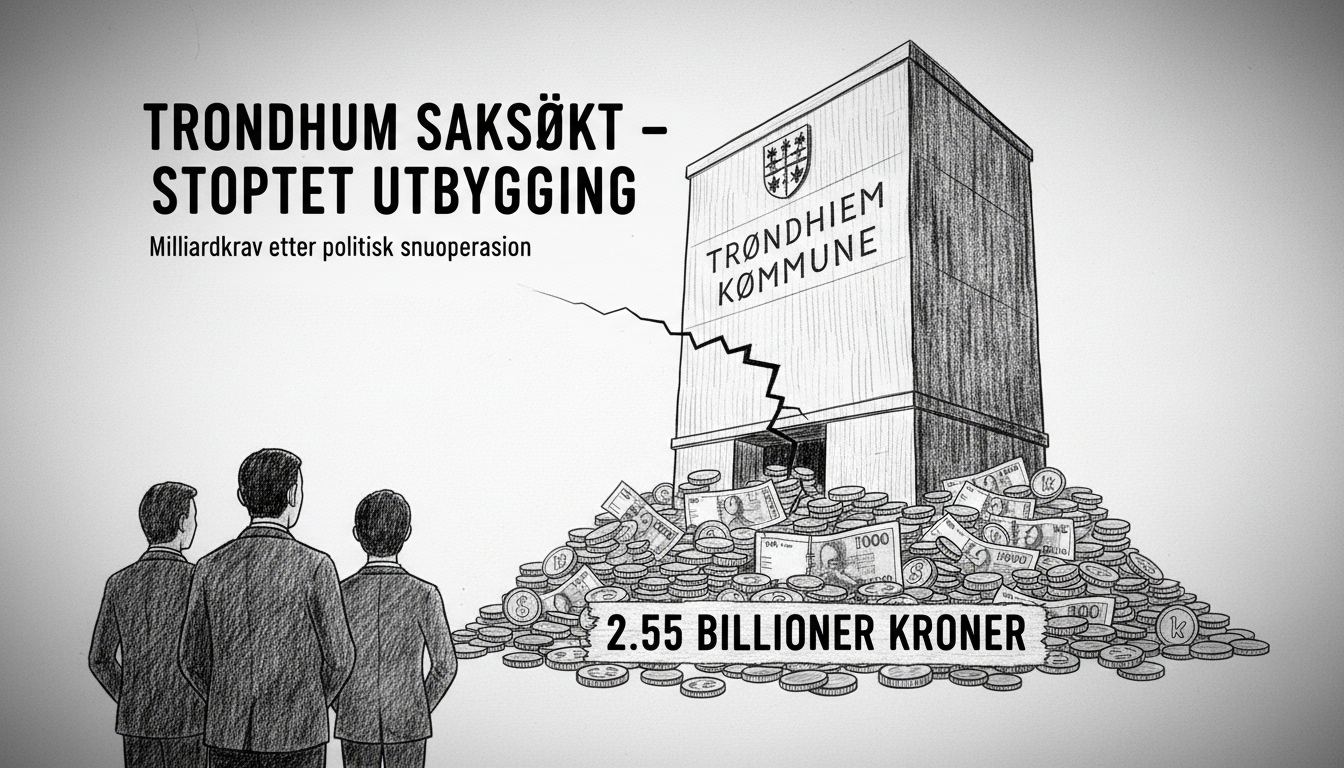Three property development companies have taken Trondheim municipality to court, demanding 2.55 billion Norwegian kroner in compensation. The lawsuit follows a political reversal that cancelled planned housing construction in the Overvik area after years of development work had already begun.
The legal battle centers on Overvik Eiendom AS, Overvik Lokalsenter AS, and Blekkan Utvikling AS, all chaired by Kolbjørn Opsahl Selmer. These companies claim they reasonably expected to proceed with development after politicians approved construction plans in 2019. They subsequently invested heavily in planning for housing, schools, and kindergartens.
Trondheim's political landscape has shifted dramatically regarding Overvik's future. The area was initially designated for agriculture, then rezoned for housing development, only to be returned to agricultural protection last year. This back-and-forth reflects deeper divisions within Trondheim politics about urban expansion versus land preservation.
The developers seek compensation for lost profits and substantial planning costs. Their detailed claim includes 1.911 billion kroner for Overvik Eiendom, 322 million for Overvik Lokalsenter, and 322 million for Blekkan Utvikling. The companies also demand reimbursement for various expenses including VIP tickets, rafting trips, and travel costs, though these represent a small portion of the total claim.
This case highlights the real-world consequences of political indecision. When municipalities change development policies after companies have made substantial investments, taxpayers often foot the bill for compensation claims. The seven days allocated for this trial in Trøndelag District Court indicate the case's complexity.
Political influence allegations have surfaced throughout this saga. Critics accused Trondheim politicians of being too receptive to developer lobbying when they initially approved the project. The case even drew national political attention, with Conservative leader Erna Solberg visiting the site in 2013 and endorsing development plans.
The municipality maintains its position, rejecting the compensation claim entirely. Trondheim Mayor Kent Ranum is scheduled to testify, though developers initially sought testimony from higher-profile politicians including Solberg. The case represents one of Norway's largest municipal compensation claims in recent years.
What happens next could set important precedents for municipal planning nationwide. If developers succeed, other Norwegian municipalities might face similar claims when reversing development decisions. If the municipality prevails, it could strengthen local government authority in land-use planning.
Norwegian property development typically involves extensive preliminary work before construction begins. Companies invest millions in architectural plans, environmental assessments, and infrastructure planning long before breaking ground. This case tests how much financial risk developers should bear when political winds change.

